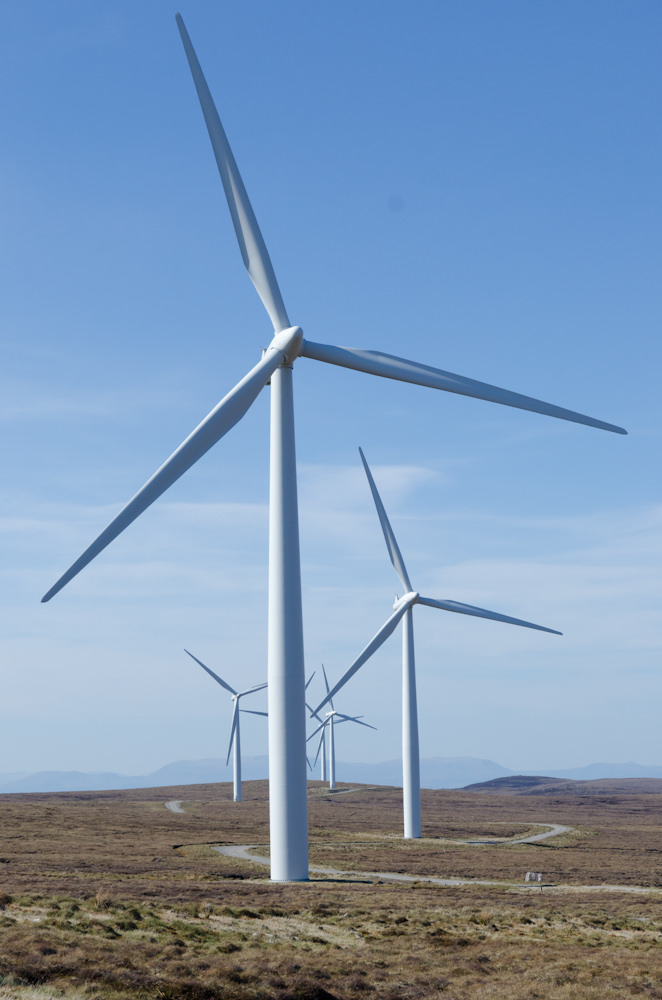
World leaders, meeting in Paris last December, signed a historic accord related to carbon emissions and global warming. The agreement, signed by 195 nations, should result in significant strides being made in the battle to combat climate change. But, in spite of these efforts, global temperatures are expected to rise 3.6 degrees over the next decades.

Photo by Steve Abraham licensed under CC BY 2.0.
Climate change ramifications reach far beyond energy and clean air, but if one focuses only on energy, there are critical question to consider. Can the country’s infrastructure actually accommodate an adequate amount of renewable energy sources? Will technology advances impact the energy industry as significantly and as positively as experts hope? Can increased demands for electricity resulting from electric cars and other vehicles be met? Will people everywhere participate?
Proclaiming “we need an energy miracle” Bill Gates also announced the formation of Breakthrough Energy Coalition at the Paris climate meeting. The coalition includes technology leaders and energy executives from various countries, and the group is committed to investing billions of dollars in clean energy options and energy infrastructure research.
The organization is another example of a public-private partnership (P3) designed to benefit the ‘global good.’ It will strive to catalyze development of alternative energy sources, introduce innovative financing options and incentivize accelerated implementation of energy projects. Critics worry that there are too few penalties for noncompliance and also because there is a clause that allows for opting out of the agreement, but overall expectations are high.
Public officials are organizing as well. In February, a bipartisan group of 17 governors signed the Governors’ Accord for a New Energy Future. The accord makes it clear that governors will be expected to modernize each of their states’ electrical grids. They will work to adjust distribution and transmission grids so citizens can control energy usage and find individual ways to embrace energy efficiency. By joining forces, the 17 states hope to substantially improve the way government manages energy infrastructure and protects the global atmosphere.
States in the Pacific Northwest are promoting a report entitled Re-wiring the Northwest’s Energy Infrastructure. They agree with the report’s premise that sustainability is based on energy, transportation, heating, waste and water systems all working together to maximize the capabilities of each. Given increasing population and heavier reliance on electricity, each infrastructure system will require more energy options and greater efficiency.
Individual citizen efforts have been stepped up over the past decade. Today, 42 states use net-metering, a program that pays individuals to contribute to electric grids by installing solar panels in homes and businesses. Congress also provides incentives through a tax credit for solar usage. Wind farms, many on family properties, are becoming more common and transportation experts say that soon power strips will be built into roadways so that motorists are able to send raw energy to underground grids. Waste-to-energy projects have been successful in many municipal landfills and more innovation is on the way. The world is changing and innovation is flowing from both the public and private sectors.
Problems related to climate change have been enumerated. The attention of the world is now focused on finding solutions. The outlook is positive. Industries will increase production as demand increases for renewable energy sources. Consumers will become important in the struggle for efficiency as public officials give them more control over usage, efficiency and savings. Elected leaders will stay focused because cities, counties and states will reap the benefits of economic development if affordable energy and clean air are available. Public-private partnerships will be launched to upgrade infrastructure systems. The rewards are great and, as global partners unite and state and local leaders form coalitions, the hope is that individuals, families and businesses will support local initiatives and find ways to contribute as well.
